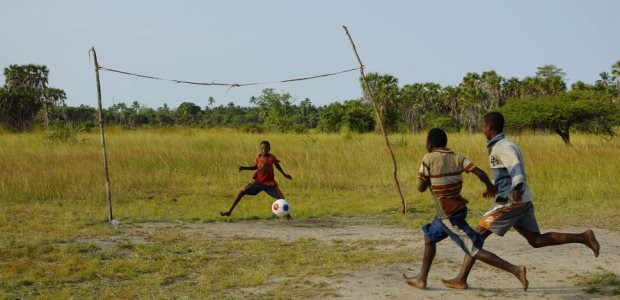In the vibrant heart of Tanzania, where the tapestry of cultures weaves a rich narrative of diversity and unity, sports emerge as a powerful medium for expression, connection, and societal transformation.
This is a nation where the rhythm of life is punctuated by the pulsating beats of traditional dances and the collective cheers of football fans.

It is here, amidst the backdrop of breathtaking landscapes, from the majestic heights of Mount Kilimanjaro to the serene expanses of the Serengeti, that sports serve not merely as a pastime or physical endeavor but as a catalyst for bringing together the myriad hues of Tanzanian society.
Including minority and indigenous athletes in the sporting arena is more than a matter of fairness or representation; it is a testament to the strength and resilience of a nation that celebrates its multifaceted identity.
It underscores a commitment to harnessing the full spectrum of its human potential, showcasing the rich contributions of all its people on national and international levels.
In this spirit, the journey of Tanzanian sports has been marked by moments of triumph and challenge, of barriers broken and paths yet to be tread.
Football, a sport that commands the nation’s heartbeat, stands at the forefront of this diversity and inclusion narrative.
Through the lens of 1xbet football prediction, a platform that captures the enthusiasm and anticipation surrounding football matches, we glimpse the evolving face of Tanzanian sports.
These predictions, often highlighting the prowess and potential of players from various ethnic and cultural backgrounds, reflect a broader shift towards inclusivity and recognition in sports.
As fans engage with 1xbet football prediction, they celebrate the talent that transcends geographical, cultural, and socio-economic boundaries, embodying the collective aspirations and dreams of the Tanzanian people.
Therefore, the essence of sports in Tanzania transcends the mere act of competition; it is a vehicle for social cohesion, a bridge connecting disparate communities, and a platform for the voices of minority and indigenous athletes to be heard and celebrated.
Historical Context
The sports narrative in Tanzania is deeply interwoven with the country’s rich historical tapestry, tracing back to when traditional games and competitions formed the cornerstone of communal interaction and celebration.
Indigenous sports, varying from ethnic group to ethnic group, were not merely recreational activities but served as rites of passage, mechanisms for conflict resolution, and means to strengthen communal bonds.
However, the introduction of modern sports during colonial times marked a significant shift in the landscape, bringing sports like football, boxing, and athletics to national consciousness.
Despite the growing popularity of these new sports, access and participation were initially skewed, reflecting the colonial and post-colonial societal structures.
Minority and indigenous communities often found themselves on the periphery, facing barriers to entry that ranged from economic constraints to outright discrimination.
The infrastructure for modern sports was predominantly urban-centric, further alienating rural and indigenous populations.
As Tanzania marched towards independence, the burgeoning national sports scene became a mirror reflecting the broader struggles for equality and representation faced by these groups.
Current Landscape
Today, the sports landscape in Tanzania is markedly more inclusive, yet the journey towards full representation and equality continues.
As the nation’s beloved sport, football has seen significant strides in integrating athletes from diverse backgrounds.
The local leagues and national teams showcase various talents that mirror the country’s ethnic and cultural diversity.
However, it’s not just football that’s seen the impact of inclusivity; athletics, boxing, and even less traditional sports like basketball and volleyball are becoming increasingly representative.
Success stories are emerging, painting a picture of a changing Tanzania where athletes from minority and indigenous backgrounds are participating, excelling, and becoming role models.
These athletes’ achievements on national and international stages challenge stereotypes and inspire future generations from similar backgrounds.
Initiatives aimed at nurturing talent from all corners of the country have played a crucial role in this transformation.
Governmental programs, alongside efforts from NGOs and community groups, have focused on identifying and supporting young athletes, providing training, resources, and platforms for competition.
Scholarships and sports academies have also become more accessible, offering pathways for talented individuals from underrepresented communities to pursue their dreams.
Impact of Inclusion in Sports
The impact of increased inclusion in Tanzanian sports extends far beyond the individual successes of athletes.
Culturally, sports have become a vehicle for promoting understanding and unity among Tanzania’s diverse population.
The shared pride in national athletes and teams acts as a unifying force, transcending ethnic and cultural divisions.
Socially, the empowerment of minority and indigenous athletes has had profound implications. For many, success in sports has meant personal achievement and the opportunity to uplift their communities, bringing attention to the challenges they face and advocating for change.
Sports have provided a platform for these athletes to become voices for their communities, inspiring young people and challenging societal norms that may limit what they believe is possible.
Economically, including diverse talents has broadened the appeal of Tanzanian sports, attracting local and international investment and interest.
This, in turn, has the potential to drive development in underrepresented areas, with sports facilities and programs fostering local economies and providing employment opportunities.
Moreover, the narrative of inclusion in sports has sparked conversations about equality, opportunity, and representation across other sectors of Tanzanian society.
The path towards a fully inclusive sports culture in Tanzania is ongoing, with challenges remaining in terms of infrastructure, funding, and societal attitudes.
However, the strides made thus far offer a hopeful glimpse into a future where sports can genuinely be a domain of equal opportunity, reflecting the rich diversity and unity of the Tanzanian spirit.
Related Post
Credit: www.Newshub360.net
